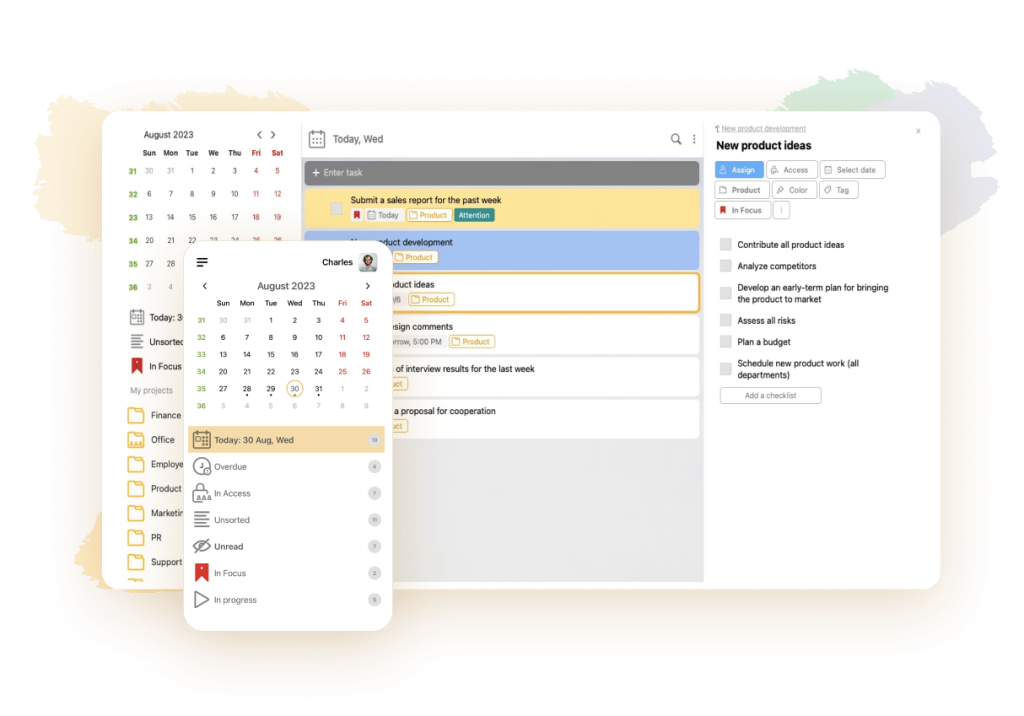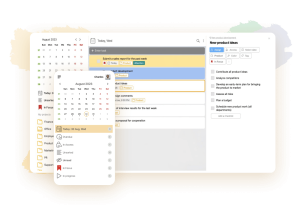What is a deadline?

Any freelancer or project manager is familiar with the expression deadline, which means a deadline by which a task must be completed. Literally translated from English, “deadline” sounds like “death line”. Fortunately, in modern terminology, it does not mean that you are expected to be immediately physically destroyed for failure to meet the deadline of a project or order. But, once upon a time, a violated deadline was indeed dealt with in the harshest way possible. Let’s try to understand what this expression means and how deadlines are applied in various spheres of life and business.
History of the origin of the term
The term “deadline” was coined in 1860 in the United States, during the Civil War. It referred to a kind of security fence that bounded the area around a prison. “The Death Line was set about six meters from the fence. Any approach of a prisoner to the line, up to and including touching it with a fingertip or foot, risked instant execution.
In the 20th century, the concept of “deadline” moved from the prison lexicon to the printing industry. This term was used by newspapermen to denote the deadline for submitting a prepared publication to the press. Today this word is used in professional ethics and ordinary life much more often, it can be heard in the vocabulary of specialists in various fields: programmers, freelancers, designers, managers, students, copywriters, marketers, athletes.
The expression deadline refers to the key concepts of planning and time management. Helps to make any abstract plans concrete and measurable. Teaches how to manage your time correctly and rationally to achieve better results.
Why a deadline is necessary
In simple terms, a deadline is a “deadline” or a limit point in time by which a task must be fully completed. The deadline can be as precise as possible, down to specifying hours and minutes. For example, copywriters working on the exchange, give orders to a clearly defined deadline. Failure to comply with deadlines leads to unpleasant consequences. An untimely order is detrimental to sales and threatens to diminish your reputation in the market. Delay in filing tax returns is fraught with penalties. In other words, the consequences of not meeting deadlines can be purely reputational, or quite serious.
For some people, the word deadline evokes negative emotions because of obsessive thoughts about possible problems that will inevitably arise when deadlines are missed. This leads to stress, emotional tension. So why complicate your life voluntarily and wear yourself out with artificially imposed restrictions?
In fact, there are quite a few useful benefits to be gained by using deadlines. Thanks to this planning tool, you will be able to:
- Achieve your goals in a timely manner. Once you have determined how much time you have, you will have no desire to put off key tasks “for later”. As you move from stage to stage in small steps, you will notice how much closer you are to your main goal.
- Improve personal and team performance, focus on what’s important. Companies that set specific deadlines for employees improve productivity. Having a deadline prevents the performer from getting bogged down in procrastination and is a great incentive to work actively during the day.
- Establish effective communication within the team. Specific deadlines make it easier to coordinate sequential and parallel stages of work within the overall project. An example is the creation of an advertising page for the launch of a new product. It is necessary to involve a team of several specialists: designer, editor, copywriter, marketer. By properly setting deadlines for each performer, you can avoid time wastage, allowing you to finish the project quickly. Each team member will know that they need to complete their task by a certain deadline.
- Allocate effort rationally. Knowing how much time you have available for a particular task can help you break it down into even segments. You will be less overloaded and clearly understand the amount of work that needs to be done during the day.
- Find the necessary resources to complete the task on time. In order not to “fail” the overall project, some of its tasks can be assigned to other specialists. If you do not have a person in your team with sufficient experience or knowledge to develop the design of the site, this task is better to assign a freelancer, setting him the appropriate time. And, you will take care of other current tasks.
Artificially limiting the deadline for a project allows a new manager to test his or her work team. This is the best way to figure out who can do the work in the team, who is a leader or, on the contrary, an outsider. Who knows how to act in stressful situations, and who gets stumped or hysterical when deviating from the chosen course.
Minuses of time limits

Hard deadlines are an effective time management method that allows you to achieve better results in less time. But, it also has its certain disadvantages:
- The realization that a task must be completed by a strictly defined time is inevitably accompanied by stress in the performer. In small doses, the feeling encourages to perform active actions, but over time it can turn into a compulsive fear of failure. If the violation of deadlines is followed by material penalties or reprimands, stress can grow into a prolonged depression. And then even the usual business, which was excellent before, the employee will not be able to do properly.
- If deadline is set illiterately, without taking into account the complexity and specificity of the assigned tasks, it can lead to financial losses for the company. When promising a customer to deliver a finished product by a certain time, the manager must be absolutely sure that all work within the project will be completed by that date. When planning, it is always necessary to allow time for possible revisions or adjustments.
Violation of deadlines can be due to personal reasons, such as illness or unforeseen circumstances in which a person found himself and did not complete the work. But, most often it happens because of laziness, disorganization and the habit of putting everything off “for later”. Performers who do not meet deadlines that are related to work, in normal life behave accordingly:
- go shopping for Christmas gifts at the store on December 31;
- pay invoices and submit reports by the last day of the deadline indicated on them;
- are always late because they get dressed in a hurry just before they leave because of the late rise.
In the course of work, such employees are always looking at their watches. Since they have to act extremely quickly to get everything done, they have no time to check the completed task or identify mistakes. Of course, the quality of work in this mode is out of the question.
You can get rid of the bad habit of putting off work “for tomorrow” with the help of a daily planner. If you schedule your time by hours and minutes and follow the plan, you won’t have to grab a thousand things to do at the end of the working day.
How to learn self-organization

Learning to complete tasks on time is difficult but possible. You need to follow three simple principles:
- Taking responsibility. In a common project, each employee is busy with his or her own task that affects the final result. If he or she fails to complete the task by the deadline, it can lead to a failure in the work of the whole team. A great incentive to “speed up” performers is to set intermediate deadlines in the task.
- Sober assessment of opportunities and resources. When we set ourselves a certain task, we often overestimate ourselves. When planning, you should take into account your speed of work and the complexity of the task. Work through this information in your mind. And only after working through this information should you set specific deadlines for yourself or your executors. When communicating with the management or the customer, it is better to stipulate in advance the possibility of a slight deviation from the set time (by a day or two, a few hours), in order to verify the result obtained.
- Use of a redline or “red line”. This term is used by businessmen to refer to a tentative delivery date to control the degree of readiness of a project. If there are any comments, it is sent for revision.
Types of deadlines
This tool is applicable to any sphere of life. In legislation, it is the deadline for submitting reports. In journalism, this term refers to the time when a publication goes to press. For programmers, copywriters, freelancers, it is the time when it is necessary to fully complete work on an order or project. Deadlines are an effective tool of marketers. They are included to stimulate consumer interest and increase buyer activity. It’s hard to refrain from buying if you receive a text message informing you that the products of your favorite brand are 50% off today. And it is valid only until the end of the day. Having received such a message, many people immediately go to the store, even though no purchases were planned for the current day.
Rules for meeting deadlines
No matter how valid the reasons for the failure of projects, their systematic violation leads to loss of reputation and financial losses for the contractor and the company. To avoid letting yourself, your colleagues and your company down, you need to follow a few simple rules:
- Calculate in advance how much time you need to complete the task. Think back to the time period you took to complete a similar project. Always plan a deadline with enough time to spare.
- Conduct an honest analysis of why you violated the deadline of previous tasks. Maybe you are constantly distracted by extraneous matters? Or you don’t have enough knowledge, experience, capabilities to cope with the task?
- Get started right from the start of the project. Prepare the necessary information and structure future processes. Do small tasks immediately and deliver them before the deadline.
By following these simple steps, you will get rid of fear and insecurity. You will realize that adherence to strict time limits is not a punishment, but a great incentive to work harder and more efficiently to get better results.
LeaderTask for planning and setting goals and objectives

In order not to get confused in the flow of daily activities and to avoid disruptions in the deadlines of important tasks, you can use your personal electronic assistant. One of the best services for planning and organizing work on projects is LeaderTask, which combines the functions of a diary, planner, task manager and organizer.
The application is suitable for personal use and management of small and medium-sized companies. Combines all popular time management tools, including GTD, Pomodoro Technique and many others.
The program has everything you need for daily and strategic planning. You can create and manage personal and team projects, assign tasks to different areas. Delegate tasks to employees and control the quality of their fulfillment.
Make lists of tasks for a day, a week or any other period. For each of them you can create your own checklist with a detailed description of the steps. Set deadlines. The application will remind you about the approaching deadline in time: an hour, a day or 15 minutes in advance. Alert you about a regular task or important negotiations.
Tasks in LeaderTask can be organized in your agenda by hours, so you can clearly see the daily picture of your working day on the calendar. You will always be aware of what needs to be done right now, what your plans are for the next month or tomorrow.
Conclusion
By understanding the benefits of deadlines, you can become more organized and productive in your work and life. In order not to feel the pressure and stress of having to meet tight deadlines, it is important that they are realistically achievable. When planning, be sure to consider your capabilities and resources. To make it easier to accomplish a complex task, break it down into smaller chunks. Use time management tools to develop self-discipline and fight procrastination. This way you can meet deadlines without stress and unpleasant consequences.



